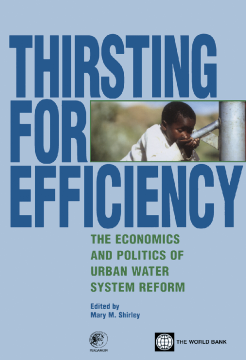
Additional Information
Book Details
Abstract
One billion people in the world lack safe drinking water and almost 2 billion lack adequate sanitation services. As a result millions suffer and die every year from water and sanitation related diseases. Poor management and inefficient investment are often responsible for this situation, and countless past attempts at reform have accomplished little. Recently some developing countries have tried to reverse years of mismanagement of their water and sewerage systems by auctioning contracts to private operators.
Why do countries that have tolerated mismanagement for decades develop a thirst for efficiency? What are the results of their efforts to change? What determines success or failure? This book fills a gap in the literature by systematically answering these important questions. It does so by analyzing reforms in six developing country capitals -- Buenos Aires, Argentina; Lima, Peru; Mexico City, Mexico; Santiago, Chile; Abidjan, Cote d'Ivoire; and Conakry, Guinea - and the United States in the 19th century.
It not only assesses economic factors, but also explores the roles of laws, politics and norms. It provides an economic theory of water that encompasses institutional, political and economic aspects of reform.
R. Martinez-Espineira
...the volume presents a clear, thorough, and valuable contribution to the literature on water supply systems. Both academic analysts and government practitioners are bound to benefit from its reading.
Environment and Development Economics
